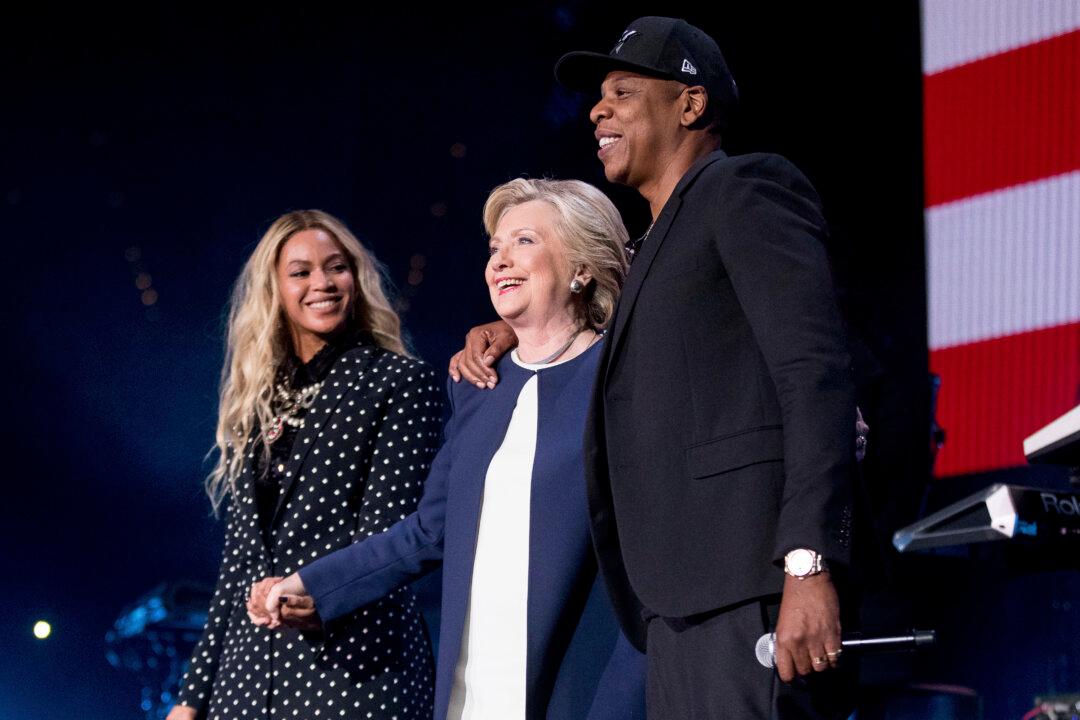NEW YORK—One lesson from the 2016 campaign: Celebrities guarantee attention, but they don’t ensure votes.
Few presidential candidates attracted as much A-list support as did former first lady and Secretary of State Hillary Clinton. But rallies in Ohio with LeBron James, Beyonce and Jay Z did not prevent Republican rival and President-elect Donald Trump from prevailing in a state President Barack Obama had won twice. A joyous election eve gathering in Philadelphia, featuring a performance by Bruce Springsteen, did not prevent Clinton from losing Pennsylvania, where no Republican had won since 1988.
Meanwhile, Trump’s notable guests in the days leading up to his stunning victory included rocker Ted Nugent, whose last top 20 album came out in 1980. The Democratic National Convention featured appearances by Meryl Streep, Katy Perry, Lena Dunham and many others. One of Trump’s few celebrity endorsers at the Republican gathering was Scott Baio of “Happy Days” fame.
And it didn’t seem to matter.
“The overwhelming majority of voters know who they’re going to vote for long before the election and don’t decide based on celebrity endorsements,” says Jon Wiener, a history professor at the University of California, Irvine whose books include “How We Forgot The Cold War” and “Gimme Some Truth: The John Lennon FBI Files.”
“I know it’s hard to believe but there were more powerful political forces at work in Pennsylvania than Bruce Springsteen.”
On Thursday, celebrities themselves were still absorbing the election’s results. Actress Kyra Sedgwick, a self-described “lefty, liberal, living in New York and California,” said she yearned to visit “Trump country” and find “what binds us together.” Singer and stage actress Deborah Cox said she was living through “a real sobering moment.”
“It’s a tough time. It’s a real sobering moment, I think, for the country,” she said.






